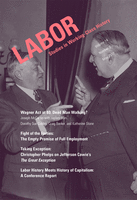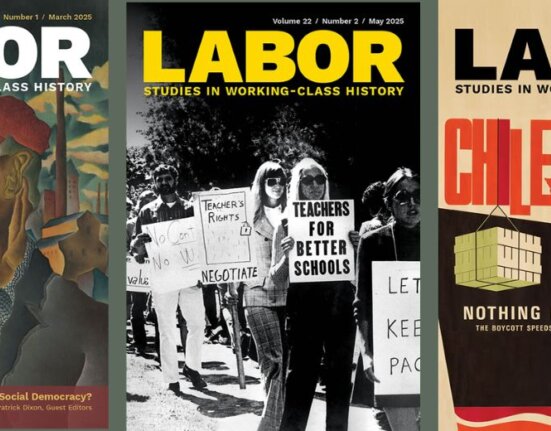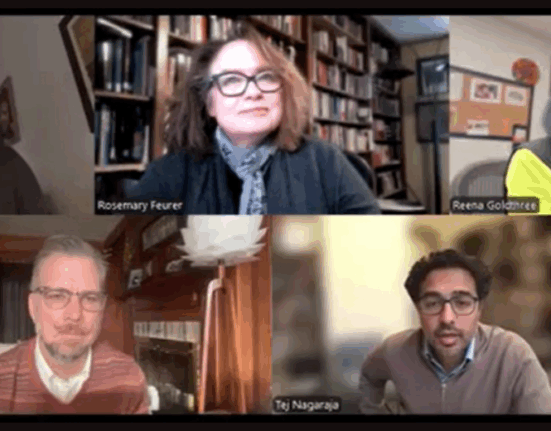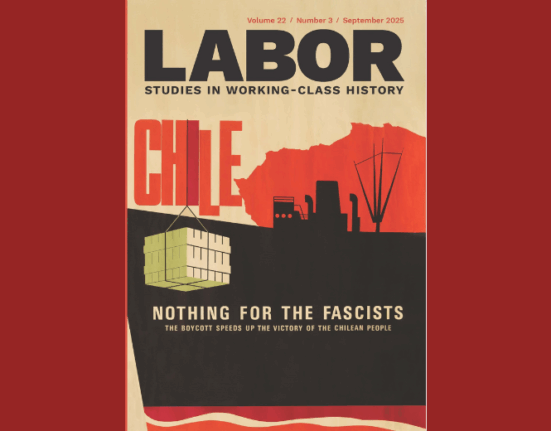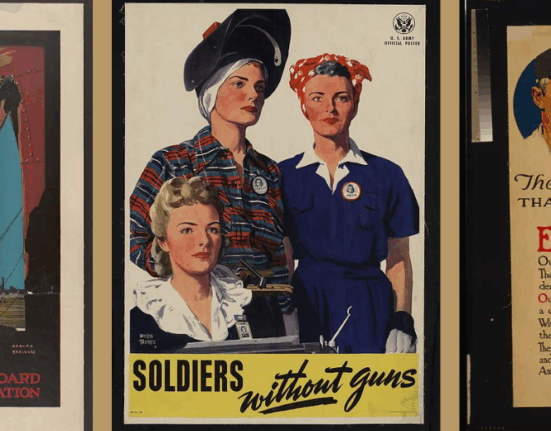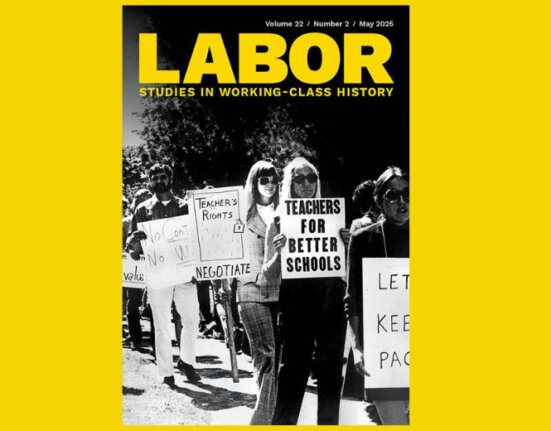In This Issue
Editor’s Introduction
- Leon Fink, “Editor’s Introduction
The Common Verse
- Joseph Millar, “Paris Rain“
LAWCHA Watch
- Conor M. Casey, “Putting History to Work: The Labor Archives of Washington as a Model for Forging Stronger Connections between Labor and the Academy“
Whither Labor History?
- Heather Wilpone-Welborn, “Finding Labor History in the History of Capitalism”
This article examines papers presented at the “Beyond ‘Free’ and ‘Unfree’ Labor” Conference held at the University of Illinois at Chicago in April 2016. It extracts salient themes and questions about the status of labor history in the growing field of the history of capitalism. Topics discussed include the role of the state in the economy, tensions concerning the separation of the so-called private and public spheres, and changes to labor regimes over time.
Up for Debate
- Joseph A. McCartin,”“As Long as There Survives”: Contemplating the Wagner Act after Eighty Years”
In light of the current crisis afflicting the labor movement, historian Joseph McCartin revisits the 1935 National Labor Relations Act (Wagner Act) eight decades after its passage and the Supreme Court ruling that upheld its constitutionality. That act constituted a “momentous shift in the nation’s jurisprudence,” but making it a living reality required American workers’ efforts on the ground. In this Up for Debate roundtable, McCartin poses critical questions: How should we evaluate the legacy of the Wagner Act? What did it mean in its time? How did it shape the course of US labor history? What significance does it hold for us in our present context? McCartin and three respondents—Craig Becker, Dorothy Sue Cobble, and Katherine Stone—address these questions and debate their responses, offering both historiographical assessments and historically informed suggestions about the labor movement’s path forward.
- Dorothy Sue Cobble,”A Wagner Act for Today: Save the Preamble but Not the Rest?“
- Craig Becker,”A Wide View of the Wagner Act at Eighty“
- Katherine V. W. Stone,”Imagining a New Labor Law for a New Era of Work“
- Joseph A. McCartin,”Rejoinder“
Articles
- Michael Dennis,”The Idea of Full Employment: A Challenge to Capitalism in the New Deal Era”
More than social security, job creation programs, or Keynesian fiscal policy, the idea of full employment galvanized the progressive intelligentsia and excited the imagination of working-class Americans in the 1940s. If historians of the period discuss it at all, however, it is usually as a footnote to New Deal liberalism. These accounts fall short of considering the broader implications of the idea as well as the vigorous business-led opposition to full-employment legislation. The promise of full employment united farmers, workers, and a broad cross-section of the progressive middle class in the conviction that the right to work could be defended against the caprices of a market economy. By questioning business control over the labor market and investment, full employment challenged some of the most essential prerogatives of capitalism. More than security, it promised a fundamental reordering of postwar society.

